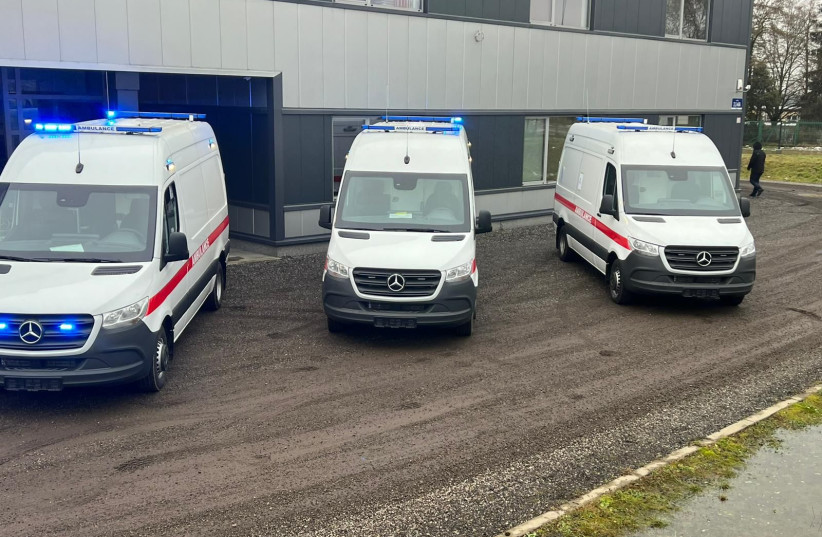Russia is putting out messaging designed to provide more support for Ukraine, after the deluge of Western reports about sending tanks and possibly warplanes to Ukraine. After a year of war, Moscow’s war aims lack clarity. While it initially envisioned a short war where it would conquer Kyiv and leave Ukraine with a partitioned state governed from Lviv, it has settled in for a long, slow-grinding one. Moscow’s aim now is to force Ukraine to fight the war on its soil and to slowly crush its besieged neighbor via attrition.
Russia’s concerns today are about the arms deliveries to Ukraine. The US, Poland, the UK and others have been adamant about upping their weapons deliveries to Kyiv. This means more artillery and air defenses. It also means more tanks – reports have pointed to some 100-200 tanks that could be delivered just this year. Some of these will be armored vehicles, but others could be main battle tanks, the big armor that Ukraine will need to defeat the Russians.

The cynical Moscow method
Moscow’s cynical method of war strategy is similar to how it has fought other conflicts, like in Georgia or Syria. It is willing to fight long, slow, frozen conflicts, as long as it doesn’t suffer or lose.
Russia wins when it plays by its own rules. While Western media have exaggerated Russia’s humiliations – even depicting President Vladimir Putin as suffering from sickness or being challenged from within – the real story is that Moscow believes the West is declining in power. Therefore, if it fights a long, slow war with the West and what Moscow sees as its Ukrainian proxy, the longer the war, the less power the West has.
But Moscow is likely wrong about this. The West has come together and is arming Ukraine and re-arming itself, a replay of the era of the 1930s when it had to re-arm in face of emerging threats such as Germany and Japan. Of course, today, Berlin and Tokyo are key allies of the West. But the point still stands: the West is rearming.
So, Russia is now reading the landscape and is rightfully concerned. Its response is to try to warn countries not to arm Ukraine, including Israel and France. Russian state media TASS says that “Russian President Vladimir Putin called it a priority to make sure that Ukrainian forces don’t have an opportunity to bombard Russian border regions.”
What follows is a claim by Moscow that it wants to prevent any bombardment of its territory. Is this referring to annexed regions, such as Crimea, Luhansk and Donetsk? Or does it mean Russia proper?
Putin has said that the meeting will focus on “supporting the residents of Crimea, the Belgorod, Bryansk and Kursk regions, whose homes and apartments in border territories have suffered damage or been ruined because of shelling by neo-Nazi formations.”
At the same time, Russia has complained about deliveries of warplanes. “French President Emmanuel Macron’s statement that the possible delivery of military aircraft to Ukraine will not lead to an escalation is absurd, Russian Foreign Ministry Spokeswoman Maria Zakharova said at a briefing on Wednesday,” TASS reported.
If you piece it together, it becomes clear that Russia’s main message is about trying to reduce the massive support that is soon to flow to Kyiv, wishing to warn France and others about this development. France is a country that historically has had keen understandings of Russia’s global role. This goes back to the era before World War I as well as the era of the Balkan conflicts in the 1990s. Putin expects that Macron, who knows history, understands this. This hope extends to Israel as well.
